Neural Encoding of Music
 Renee Fleming’s Music and the Mind Live with Nina Kraus (2020)
Renee Fleming’s Music and the Mind Live with Nina Kraus (2020)
 Sound Health (2018)
Sound Health (2018)
Say it with Rhythm! A Performance Demo with Dr. Nina Kraus (ft. Mickey Hart and Zakir Hussain)
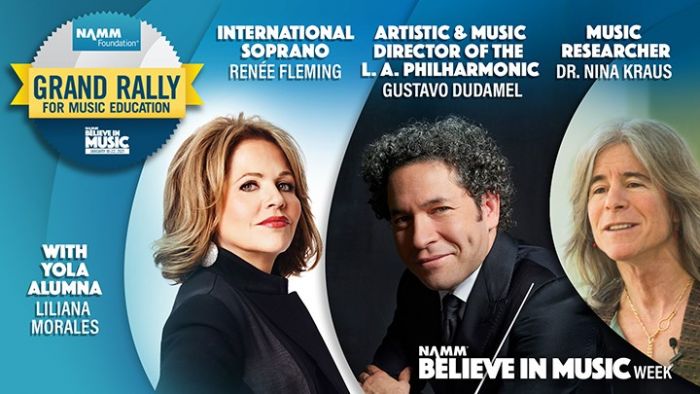 NAMM Foundation Grand Rally for Music Education featuring Dr. Nina Kraus and Renée Fleming (2021)
NAMM Foundation Grand Rally for Music Education featuring Dr. Nina Kraus and Renée Fleming (2021)
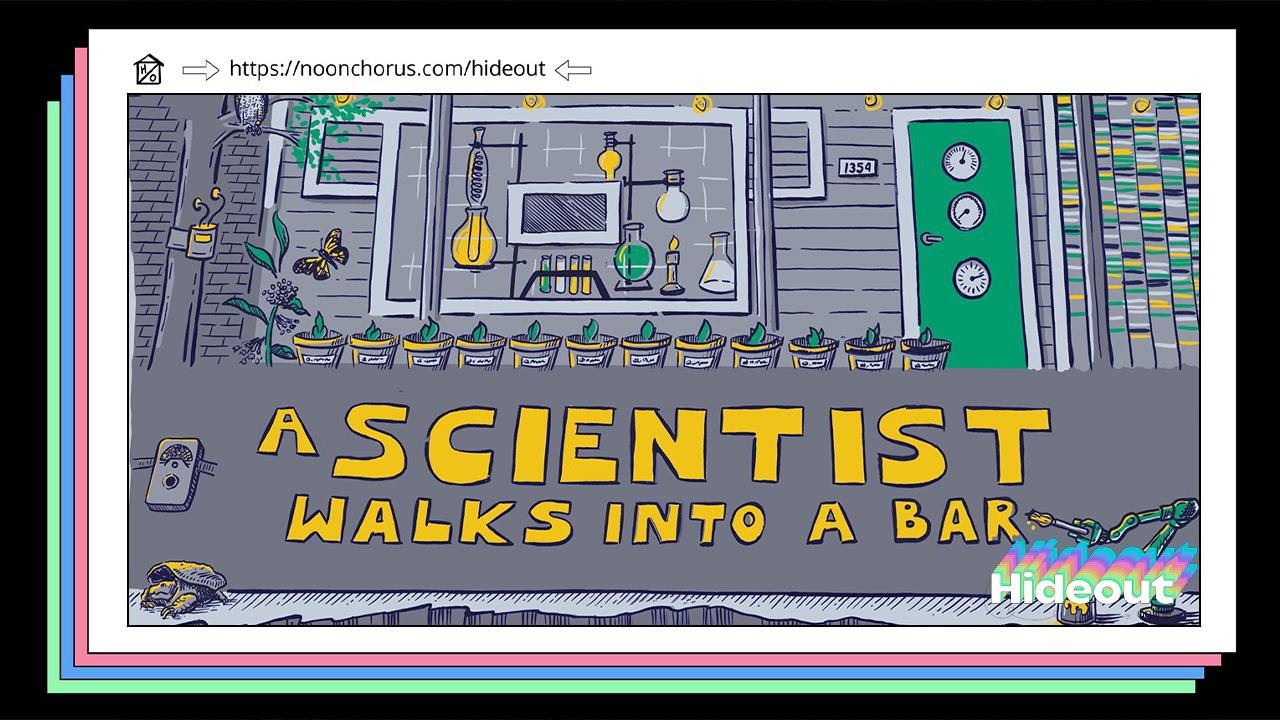 A Scientist Walks into a Bar: Interview with Nina Kraus (2020)
A Scientist Walks into a Bar: Interview with Nina Kraus (2020)
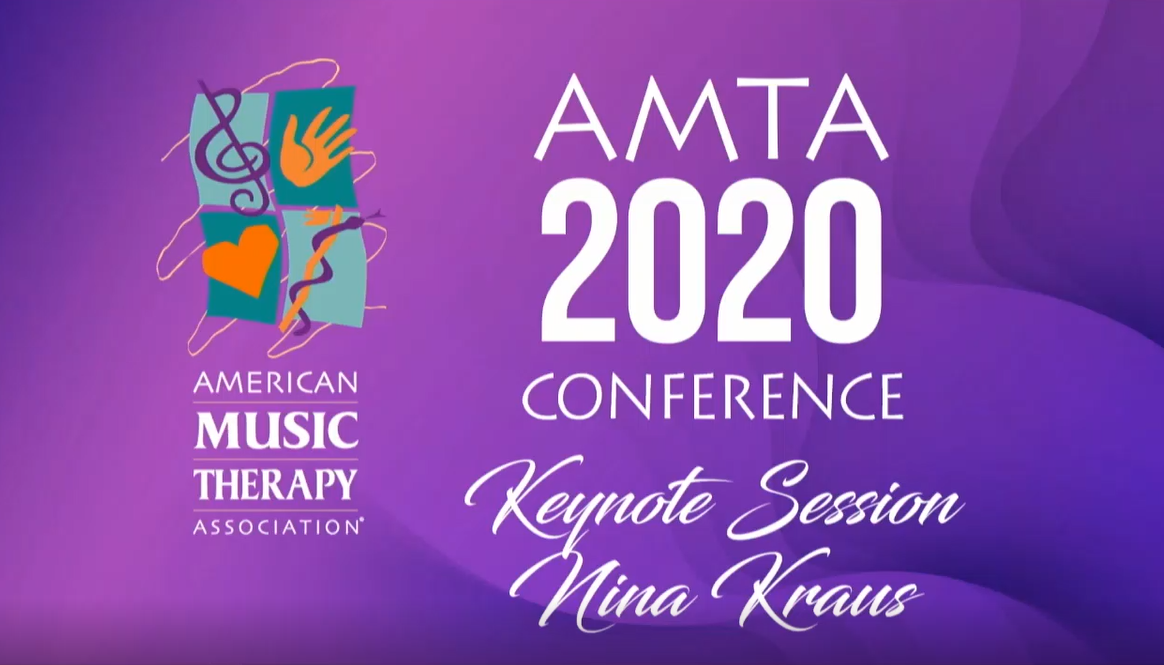 American Music Therapy Association National Conference Keynote (2020)
American Music Therapy Association National Conference Keynote (2020)
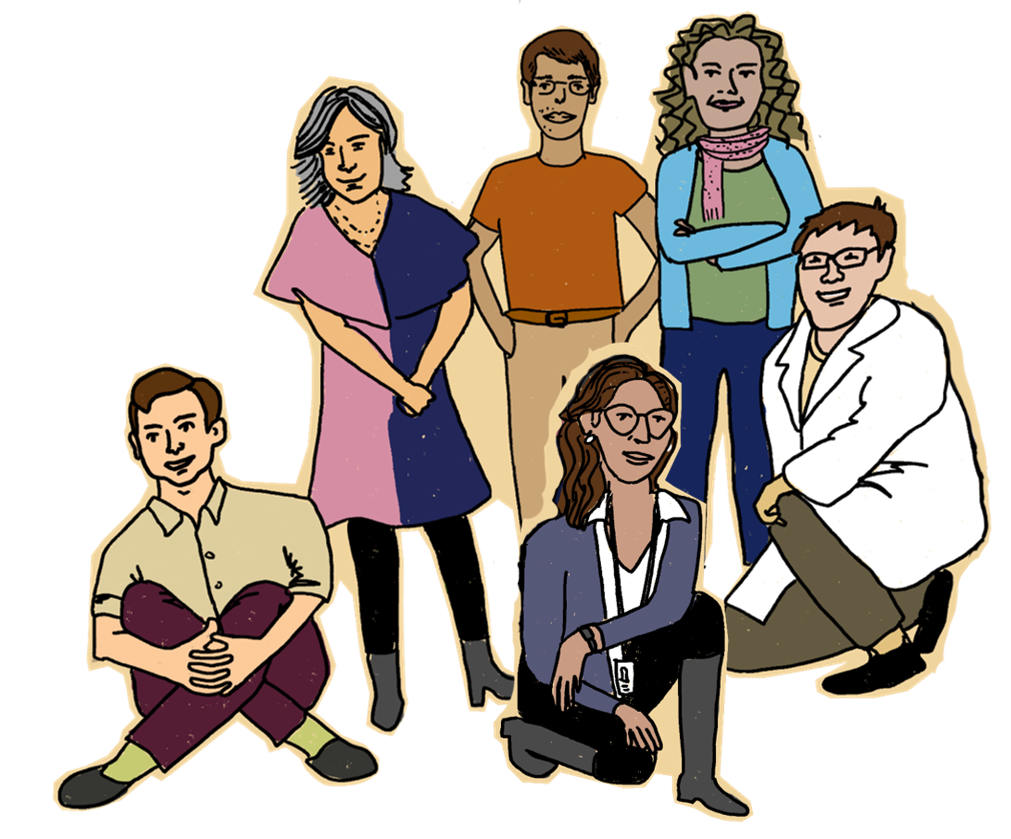 NEA – National Endowment for the Arts (2019)
NEA – National Endowment for the Arts (2019)
All Labs Summit
The Science of Sound:
How Music and Rhythm Research Informs Healthy Choices
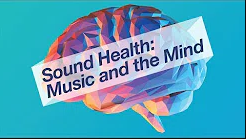 Sound Health (2018)
Sound Health (2018)
Music and the Mind: with Dr. Nina Kraus
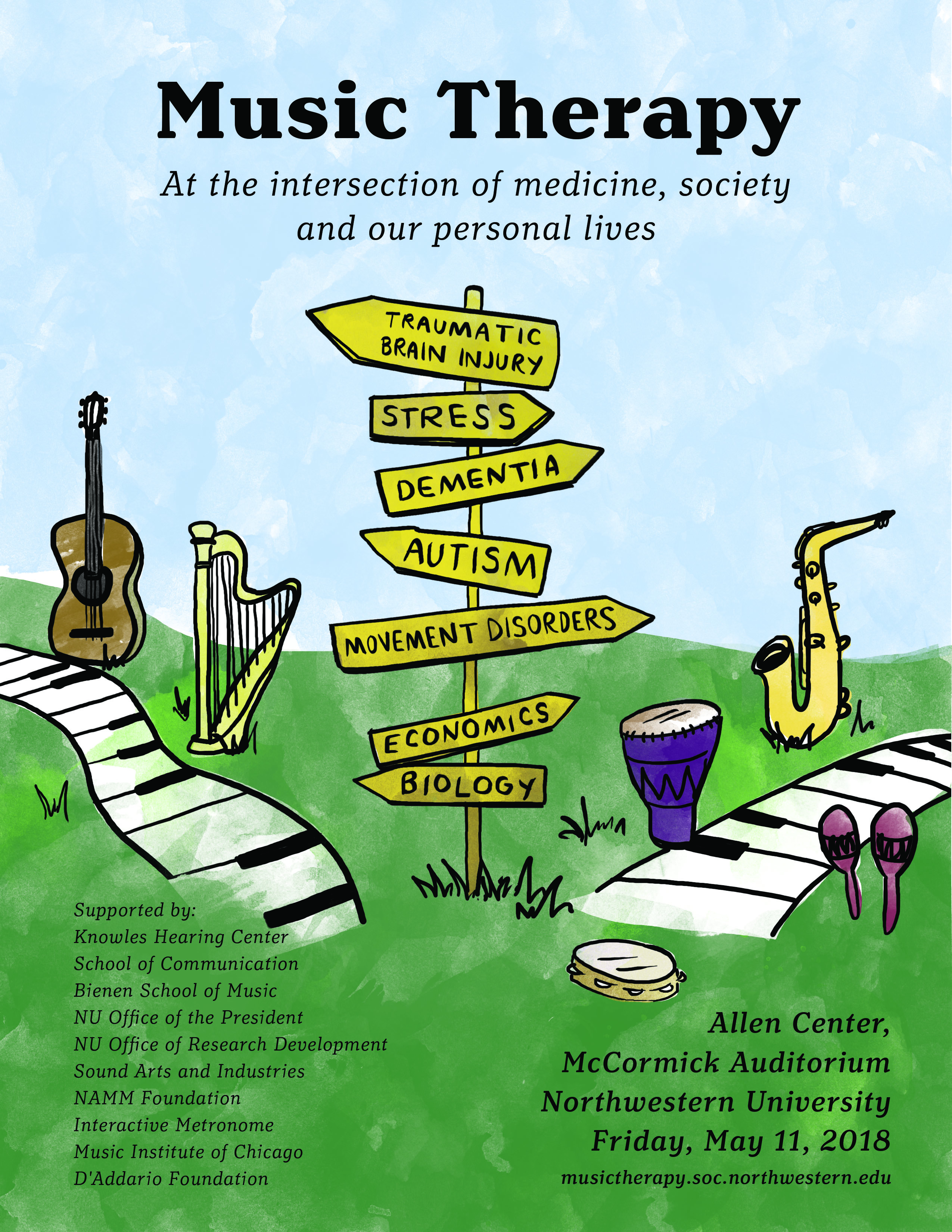 Music Therapy Conference (2018)
Music Therapy Conference (2018)
At the intersection of medicine, society and our personal lives
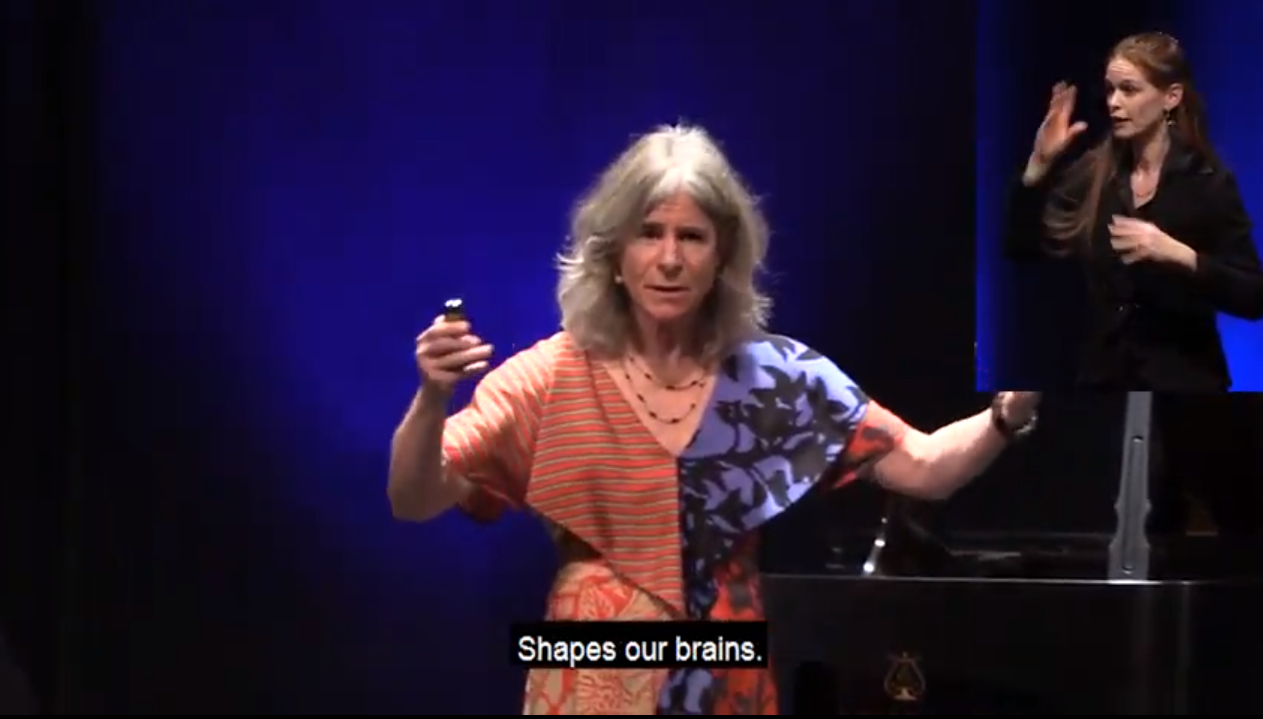 ARO (2018)
ARO (2018)
Dr. Nina Kraus speaks at the Balboa Theater in San Diego
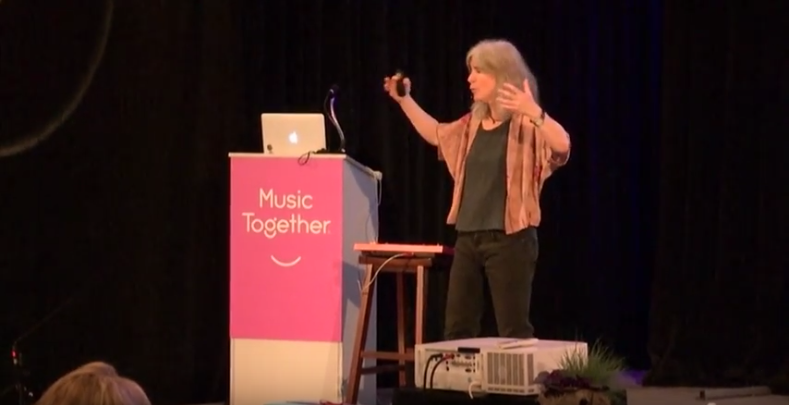 Music Together Conference (2018)
Music Together Conference (2018)
Join us to celebrate thirty years of making the world more musical!
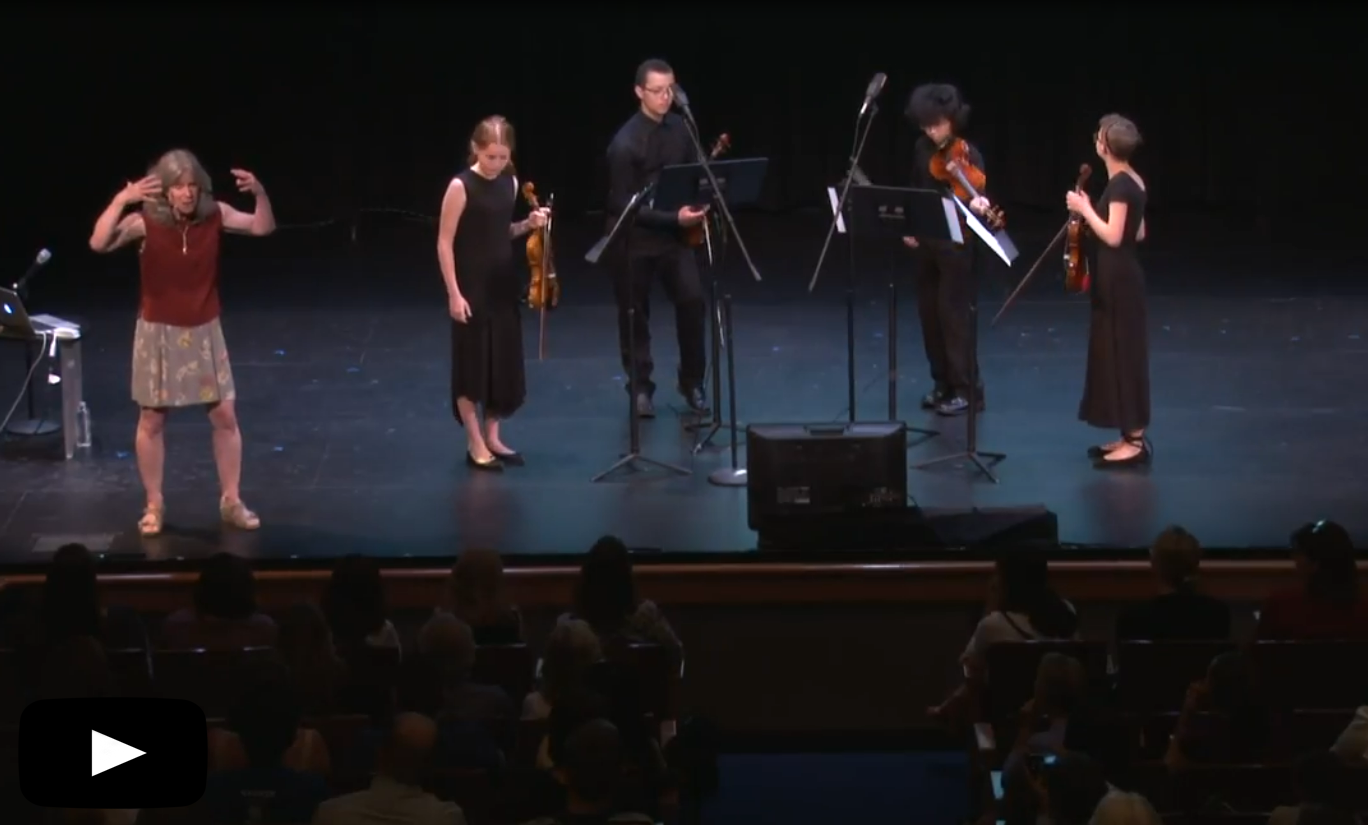 Sound Health (2017)
Sound Health (2017)
Nina Kraus and the D.C. Youth Orchestra on Music and Childhood Development
 Music in Mind: Nina Kraus and Charles Limb
Music in Mind: Nina Kraus and Charles Limb
Special presentation for the Association for Research in Otolaryngology at the San Diego Symphony, 2016
 Music and Language – A Brain Partnership
Music and Language – A Brain Partnership
Presentation for the Center for Computer Research in Music and Acoustics at the Stanford University, 2016
Featured
- Kraus N, White-Schwoch T The argument for music education. American Scientist.
- Kraus N, Nicol T The power of sound for brain health. Nature Human Behaviour.
- Kraus N, White-Schwoch T Neurobiology of everyday communication: what have we learned from music. The Neuroscientist.
- Tierney A, Krizman J, Kraus N Music training alters the course of adolescent auditory development. Proceedings of the National Academy of Sciences.
- Kraus N, Slater J, Thompson EC, Hornickel J, Strait D, Nicol T, White-Schwoch T Music enrichment programs improve the neural encoding of speech in at-risk children. Journal of Neuroscience.
- White-Schwoch T, Woodruff Carr K, Anderson S, Strait DL, Kraus N Older adults benefit from music training early in life: biological evidence for long-term training-driven plasticity. Journal of Neuroscience.
- Kraus N, Chandrasekaran B Music training for the development of auditory skills. Nature Reviews Neuroscience.
- Parbery-Clark A, Skoe E, Kraus N Musical experience limits the degradative effects of background noise on the neural processing of sound. Journal of Neuroscience.
- Musacchia G, Sams M, Skoe E, Kraus N Musicians have enhanced subcortical auditory and audiovisual processing of speech and music. Proceedings of the National Academy of Science.
- Wong PCM, Skoe E, Russo NM, Dees T, Kraus N Musical experience shapes human brainstem encoding of linguistic pitch patterns. Nature Neuroscience.
Rhythm
- Bonacina S, Huang S, White-Schwoch T, Krizman J, Nicol T, Kraus N Rhythm, Reading, and Sound Processing in the Brain in Preschool Children. npj Science of Learning.
- Bonacina S, Krizman J, White-Schwoch T, Nicol T, Kraus N Clapping in time with feedback relates pervasively with other rhythmic skills of adolescents and young adults. Perceptual and Motor Skills.
- Kraus N Editorial: RHYTHM: A Case for Digital Music Medicine. Hearing Journal.
- Bonacina S, Krizman J, White-Schwoch T, Nicol T, Kraus N Distinct rhythmic abilities align with phonological awareness and rapid naming in school-age children. Cognitive Processing.
- Bonacina S, Krizman J, White-Schwoch T, Nicol T, Kraus N How rhythmic skills relate and develop in school-age children. Global Pediatric Health.
- Bonacina S, Krizman J, White-Schwoch T, Kraus N Clapping in time parallels literacy and calls upon overlapping neural mechanisms in early readers. Annals of the New York Academy of Sciences.
- Kraus N, White-Schwoch T How feedback synchronizes the auditory brain. Hearing Journal.
- Kraus N, White-Schwoch T New connections in music therapy and audiology. Hearing Journal.
- Slater J, Kraus N, Woodruff Carr K, Tierney A, Azem A, Ashley R Speech-in-noise perception is linked to rhythm production skills in adult percussionists and non-musicians. Language, Cognition and Neuroscience.
- Kraus N, White-Schwoch T Feel the vibrations: The hearing-emotion connection. Hearing Journal.
- Kraus N, White-Schwoch T Neurobiology of everyday communication: what have we learned from music. The Neuroscientist.
- Slater J, Ashley R, Tierney A, Kraus N Got rhythm? Better inhibitory control is linked with more consistent drumming and enhanced neural tracking of the musical beat in adult percussionists and nonpercussionists. Journal of Cognitive Neuroscience.
- Slater J, Azem A, Nicol T, Swedenborg B, Kraus N Variations on the theme of musical expertise: cognitive and sensory processing in percussionists, vocalists and non-musicians. European Journal of Neuroscience.
- Tierney A, White-Schwoch T, MacLean J, Kraus N Individual differences in rhythmic skills: links with neural consistency and linguistic ability. Journal of Cognitive Neuroscience.
- Kraus N, Slater J Beyond words: how humans communicate through sound. Annual Review of Psychology.
- Kraus N, White-Schwoch T Timescales of auditory processing. Hearing Journal.
- Slater J, Kraus N The role of rhythm in perceiving speech in noise: a comparison of percussionists, vocalists and non-musicians. Cognitive Processing.
- Tierney A, Kraus N Getting back on the beat: links between auditory-motor integration and precise auditory processing at fast time scales. European Journal of Neuroscience.
- Woodruff Carr K, Tierney A, White-Schwoch T, Kraus N Intertrial auditory neural stability supports beat synchronization in preschoolers. Developmental Cognitive Neuroscience.
- Kraus N, Anderson S Beat-keeping ability relates to reading readiness. Hearing Journal.
- Kraus N, Slater J Music and language: relations and disconnections The Human Auditory System: Fundamental Organization and Clinical Disorders. Handbook of Clinical Neurology.
- Kraus N, Strait DL Emergence of biological markers of musicianship with school-based music instruction. Annals of the New York Academy of Sciences.
- Lehmann A, Skoe E, Moreau P, Peretz I, Kraus N Impairments in musical abilities reflected in the auditory brainstem: evidence from congenital amusia. European Journal of Neuroscience.
- Skoe E, Krizman J, Spitzer E, Kraus N Prior experience biases subcortical sensitivity to sound patterns. Journal of Cognitive Neuroscience.
- Slater J, Skoe E, Strait D, O'Connell S, Thompson EC, Kraus N Music training improves speech-in-noise perception: longitudinal evidence from a community-based music program. Behavioural Brain Research.
- Thompson EC, White-Schwoch T, Tierney A, Kraus N Beat synchronization across the lifespan: intersection of development and musical experience. PLoS One.
- Tierney A, Kraus N Evidence for multiple rhythmic skills. PLoS One.
- Tierney A, Kraus N Neural entrainment to the rhythmic structure of music. Journal of Cognitive Neuroscience.
- Slater J, Strait DL, Skoe E, O’Connell S, Thompson EC, Kraus N Longitudinal effects of group music instruction on literacy skills in low-income children. PLoS One.
- Tierney A, Kraus N Auditory-motor entrainment and phonological skills: precise auditory timing hypothesis (PATH). Frontiers in Human Neuroscience.
- Woodruff Carr K, White-Schwoch T, Tierney A, Strait DL, Kraus N Beat synchronization predicts neural speech encoding and reading readiness in preschoolers. Proceedings of the National Academy of Sciences.
- Barrett KC, Ashley R, Strait DL, Kraus N Art and science: how musical training shapes the brain. Frontiers in Psychology.
- Kraus N Playing music to improve hearing in noise and tune the brain. ENT & Audiology News.
- Slater J, Tierney A, Kraus N At-risk elementary school children with one year of classroom music instruction are better at keeping a beat. PLoS One.
- Tierney A, Kraus N Musical training for the development of language skills. Changing Brains – Applying Brain Plasticity to Advance and Recover Human Ability.
- Tierney A, Kraus N Neural responses to sounds presented on and off the beat of ecologically valid music. Frontiers in Systems Neuroscience.
- Tierney A, Kraus N The ability to move to a beat is linked to the consistency of neural responses to sound. Journal of Neuroscience.
- Kraus N, Strait D, Parbery-Clark A Cognitive factors shape brain networks for auditory skills: spotlight on auditory working memory. Annals of the New York Academy of Sciences: The Neurosciences and Music IV.
- Strait DL, Hornickel J, Kraus N Subcortical processing of speech regularities predicts reading and music aptitude in children. Behavioral and Brain Functions.
- Strait DL, Kraus N Playing music for a smarter ear: cognitive, perceptual and neurobiological evidence. Music Perception.
- Kraus N, Chandrasekaran B Music training for the development of auditory skills. Nature Reviews Neuroscience.
- Kraus N, Nicol T The musician's auditory world. Acoustics Today.
- Strait DL, Kraus N, Parbery-Clark A, Ashley R Musical experience shapes top-down auditory mechanisms: evidence from masking and auditory attention performance. Hearing Research.
- Kraus N, Skoe E, Parbery-Clark A, Ashley R Experience-induced malleability in neural encoding of pitch, timbre and timing: implications for language and music. Annals of the New York Academy of Sciences: Neurosciences and Music III.
- Strait DL, Skoe E, Kraus N, Ashley R Musical experience and neural efficiency - effects of training on subcortical processing of vocal expressions of emotion. European Journal of Neuroscience.
- Musacchia G, Strait D, Kraus N Relationships between behavior, brainstem and cortical encoding of seen and heard speech in musicians and nonmusicians. Hearing Research.
- Stegemöller EL, Skoe E, Nicol T, Warrier C, Kraus N Musical training and vocal production of speech and song. Music Perception.
Publications pertaining to Interactive Metronome

- Bonacina S, Krizman J, White-Schwoch T, Nicol T, Kraus N Clapping in time with feedback relates pervasively with other rhythmic skills of adolescents and young adults. Perceptual and Motor Skills.
- Kraus N Editorial: RHYTHM: A Case for Digital Music Medicine. Hearing Journal.
- Bonacina S, Krizman J, White-Schwoch T, Nicol T, Kraus N How rhythmic skills relate and develop in school-age children. Global Pediatric Health.
- Bonacina S, Krizman J, White-Schwoch T, Kraus N Clapping in time parallels literacy and calls upon overlapping neural mechanisms in early readers. Annals of the New York Academy of Sciences.
- Woodruff Carr K, Fitzroy AB, Tierney A, White-Schwoch T, Kraus N Incorporation of feedback during beat synchronization is an index of neural maturation and reading skills. Brain and Language.
Music
- Barrett K, Ashley R, Strait D, Skoe E, Limb C, Kraus N Multi-voiced Music Bypasses Attentional Limitations in the Brain. Frontiers in Neuroscience.
- Kraus N Editorial: RHYTHM: A Case for Digital Music Medicine. Hearing Journal.
- Kraus N, White-Schwoch T The argument for music education. American Scientist.
- Kraus N, Nicol T Brainstem encoding of speech and music sounds in humans. “The Oxford Handbook of The Auditory Brainstem” (Karl Kandler, Ed).
- Kraus N, White-Schwoch T Impact of life experiences on hearing in noise. Hearing Journal.
- Kraus N, White-Schwoch T New connections in music therapy and audiology. Hearing Journal.
- Intartaglia B, White-Schwoch T, Kraus N, Schön D Music training enhances the automatic neural processing of foreign speech sounds. Scientific Reports.
- Kraus N, Nicol T The power of sound for brain health. Nature Human Behaviour.
- Kraus N, White-Schwoch T Music keeps the hearing brain young. Hearing Journal.
- Kraus N Music, hearing, and education: from the lab to the classroom. ENT and Audiology News.
- Lee KM, Skoe E, Kraus N, Ashley R Neural transformation of dissonant intervals in the auditory brainstem. Music Perception.
- Strait DL, Slater J, O'Connell S, Kraus N Music training relates to the development of neural mechanisms of selective auditory attention. Developmental Cognitive Neuroscience.
- Tierney A, Krizman J, Kraus N Music training alters the course of adolescent auditory development. Proceedings of the National Academy of Sciences.
- Kraus N, Anderson S Community-based training shows objective evidence of efficacy. Hearing Journal.
- Kraus N, Anderson S Music benefits across the lifespan: enhanced processing of speech in noise. Hearing Review.
- Kraus N, Hornickel J, Strait DL, Slater J, Thompson EC Engagement in community music classes sparks neuroplasticity and language development in children from disadvantaged backgrounds. Frontiers in Psychology, Cognitive Science.
- Kraus N, Slater J, Thompson EC, Hornickel J, Strait D, Nicol T, White-Schwoch T Music enrichment programs improve the neural encoding of speech in at-risk children. Journal of Neuroscience.
- Kraus N, Slater J, Thompson EC, Hornickel J, Strait DL, Nicol T, White-Schwoch T Auditory learning through active engagement with sound: Biological impact of community music lessons in at-risk children. Frontiers in Auditory Cognitive Neuroscience.
- Kraus N, White-Schwoch T Music training: lifelong investment to protect the brain from aging and hearing loss. Acoustics Australia.
- Kraus N, Zatorre RJ, Strait DL Editors’ introduction to hearing research special issue: Music, a window into the hearing brain. Hearing Research.
- Kraus N, Zatorre RJ, Strait DL, eds Music: a window into the hearing brain. Hearing Research Special Issue.
- Strait DL, Kraus N Biological impact of auditory expertise across the life span: musicians as a model of auditory learning. Hearing Research.
- Strait DL, O’Connell S, Parbery-Clark A, Kraus N Musicians’ enhanced neural differentiation of speech sounds arises early in life: developmental evidence from ages three to thirty. Cerebral Cortex.
- Kraus N 20Q: Noise, aging and the brain - how experience and training can improve communication. AudiologyOnline.
- Kraus N Facing the music: musicianship's effect on the brain. Canadian Hearing Report.
- Kraus N, Anderson S Music training: an antidote for aging. Hearing Journal.
- Parbery-Clark A, Anderson S, Kraus N Musicians change their tune: how hearing loss alters the neural code. Hearing Research.
- Parbery-Clark A, Strait DL, Hittner E, Kraus N Musical training enhances neural processing of binaural sounds. Journal of Neuroscience.
- Skoe E, Kraus N Musical training heightens auditory brainstem function during sensitive periods in development. Frontiers in Psychology.
- Strait DL, O'Connell S, Parbery-Clark A, Kraus N Biological impact of preschool music classes on processing speech in noise. Developmental Cognitive Neuroscience.
- Tierney A, Kraus N The ability to tap to a beat relates to cognitive, linguistic, and perceptual skills. Brain and Language.
- Tierney A, Krizman J, Skoe E, Johnston K, Kraus N High school music classes enhance the neural processing of speech. Frontiers in Educational Psychology.
- White-Schwoch T, Woodruff Carr K, Anderson S, Strait DL, Kraus N Older adults benefit from music training early in life: biological evidence for long-term training-driven plasticity. Journal of Neuroscience.
- Kraus N Biological impact of music and software-based auditory training. Journal of Communication Disorders.
- Parbery-Clark A, Anderson S, Hittner E, Kraus N Musical experience offsets age-related delays in neural timing. Neurobiology of Aging.
- Parbery-Clark A, Anderson S, Hittner E, Kraus N Musical experience strengthens the neural representation of sounds important for communication in middle-aged adults. Frontiers in Aging Neuroscience.
- Parbery-Clark A, Tierney A, Strait DL, Kraus N Musicians have fine-tuned neural distinction of speech syllables. Neuroscience.
- Skoe E, Kraus N A little goes a long way: how the adult brain is shaped by musical training in childhood. Journal of Neuroscience.
- Strait DL, Chan K, Ashley R, Kraus N Specialization among the specialized: auditory brainstem function is tuned in to timbre. Cortex.
- Strait DL, Parbery-Clark A, Hittner E, Kraus N Musical training during early childhood enhances the neural encoding of speech in noise. Brain and Language.
- Anderson S, Kraus N Neural encoding of speech and music: implications for hearing speech in noise. Seminars in Hearing.
- Kraus N Musical training gives edge in auditory processing. Hearing Journal.
- Marmel F, Parbery-Clark A, Skoe E, Nicol T, Kraus N Harmonic relationships influence auditory brainstem encoding of chords. NeuroReport.
- Parbery-Clark A, Strait DL, Anderson S, Hittner E, Kraus N Musical experience and the aging auditory system: implications for cognitive abilities and hearing speech in noise. PLoS One.
- Parbery-Clark A, Strait DL, Kraus N Context-dependent encoding in the auditory brainstem subserves enhanced speech-in-noise perception in musicians. Neuropsychologia.
- Skoe E, Kraus N Human subcortical auditory function provides a new conceptual framework for considering modularity: a commentary of Isabelle Peretz’ keynote paper “Music, language and modularity in action. Language and Music as Cognitive Systems.
- Strait DL, Kraus N Can you hear me now? Musical training shapes functional brain networks for selective auditory attention and hearing speech in noise. Frontiers in Psychology.
- Chandrasekaran B, Kraus N Music, noise-exclusion, and learning. Music Perception.
- Skoe E, Kraus N Hearing it again and again: on-line subcortical plasticity in humans. PLoS One.
- Kraus N, Skoe E New directions: cochlear implants. Annals of the New York Academy of Sciences: Neurosciences and Music III.
- Lee KM, Skoe E, Kraus N, Ashley R Selective subcortical enhancement of musical intervals in musicians. Journal of Neuroscience.
- Parbery-Clark A, Skoe E, Kraus N Musical experience limits the degradative effects of background noise on the neural processing of sound. Journal of Neuroscience.
- Parbery-Clark A, Skoe E, Lam C, Kraus N Musician enhancement for speech in noise. Ear and Hearing.
- Strait DL, Skoe E, Ashley R, Kraus N Musical experience promotes subcortical efficiency in processing emotional vocal sounds. Annals of the New York Academy of Sciences: Neurosciences and Music III.
- Tzounopoulos T, Kraus N Learning to encode timing: mechanisms of plasticity in the auditory brainstem. Neuron.
- Kraus N, Banai K Auditory processing malleability: focus on language and music. Current Directions in Psychological Science.
- Musacchia G, Sams M, Skoe E, Kraus N Musicians have enhanced subcortical auditory and audiovisual processing of speech and music. Proceedings of the National Academy of Science.
- Wong PCM, Skoe E, Russo NM, Dees T, Kraus N Musical experience shapes human brainstem encoding of linguistic pitch patterns. Nature Neuroscience.

 Roma Tre University, Music for Inclusive Teaching: La Musica e il nostro cervello, Nina Kraus, In Italian (2023)
Roma Tre University, Music for Inclusive Teaching: La Musica e il nostro cervello, Nina Kraus, In Italian (2023)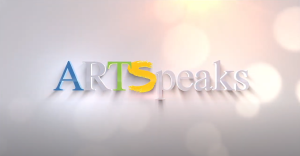 Music helps facilitate language learning and so much more: Professor Nina Kraus, Northwestern Univ. (2021)
Music helps facilitate language learning and so much more: Professor Nina Kraus, Northwestern Univ. (2021)